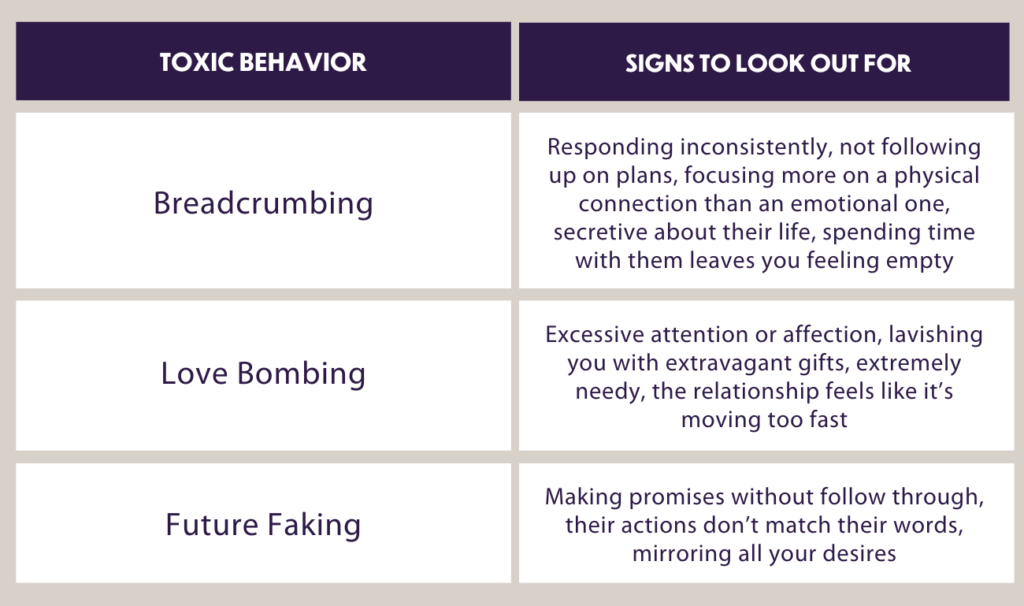In today’s fast-paced dating and relationship world, it is often challenging to navigate the different dynamics and behaviors that people exhibit. This can be especially true after a divorce, where you may be vulnerable and less apt to recognize toxic behaviors from a new partner. Such behaviors might include breadcrumbing, love bombing, and future faking. These all have a significant impact on your post-divorce relationships. Understanding destructive dynamics helps you avoid toxic relationships and improve your chances of finding a healthy and fulfilling connection

Breadcrumbing
Breadcrumbing is where one person leads another person on by sending them occasional messages or signs of attention. They actually never follow through with a date or commitment. This can happen through text messages, social media, or other forms of communication. Breadcrumbing is often a form of manipulation. It can be very hurtful if you’re on the receiving end, since you may have false hope of a relationship developing.
Love Bombing
Love bombing is a manipulative tactic that is often used by individuals with narcissistic tendencies. It involves showering a potential partner with excessive attention, affection, and gifts early in the relationship to create a false sense of security and control. This can be particularly harmful to those who are emotionally vulnerable or looking for love, like after a divorce. It can create an intense bond that is difficult to break.
Future Faking
Future faking is a behavior in which a person leads their partner to believe that they have a shared future together, without any actual plans or commitment. This can involve making false promises or sharing fantasies about the future without any intention of following through. It is a manipulative tactic that can be harmful to both partners in a relationship.
Understanding each of these behaviors and knowing the signs is crucial in avoiding toxic relationships and finding a healthy and fulfilling connection. Although you may be lonely and vulnerable post-divorce, it’s important to recognize when someone is breadcrumbing, love bombing, or future faking, so you can set boundaries and prioritize your well-being. Developing good communication skills and being aware of your own emotional needs can also help you avoid being drawn into an unhealthy relationship with a partner that exhibits these toxic behaviors.




